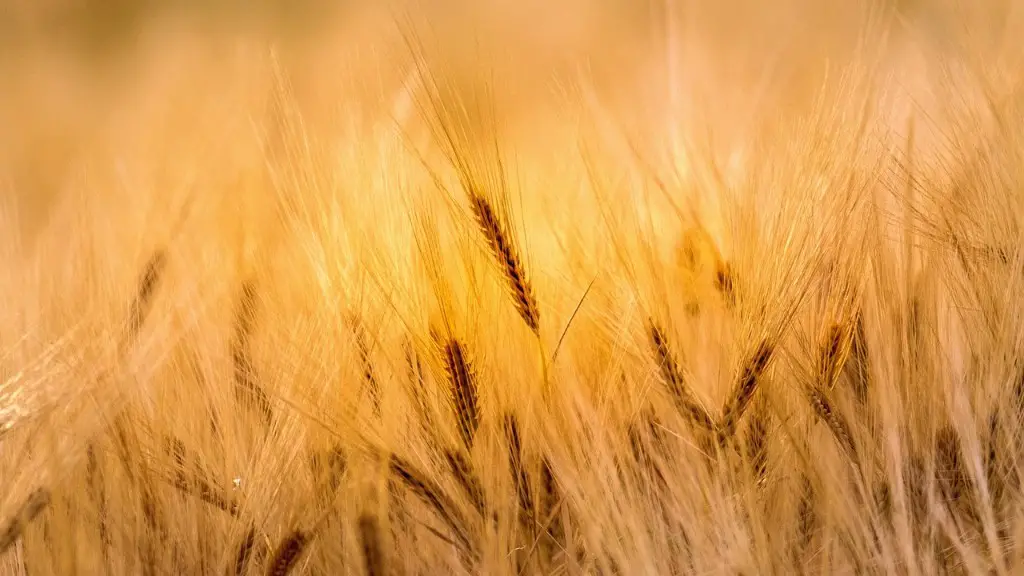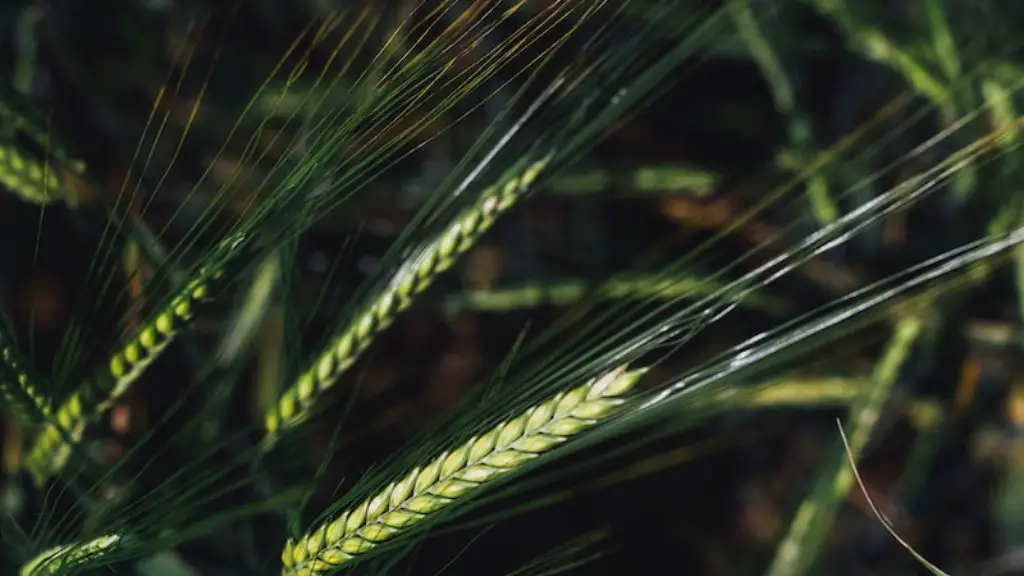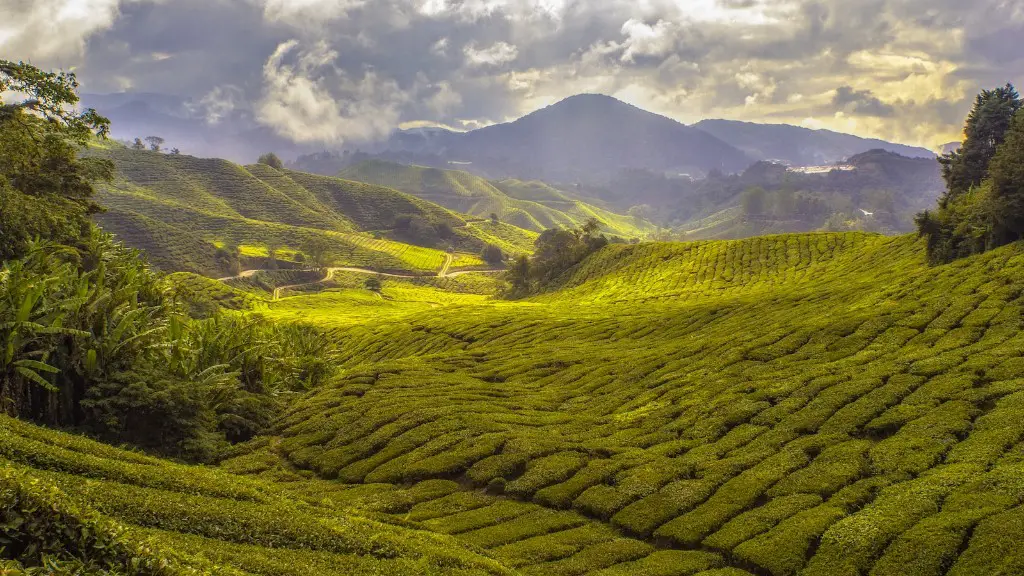Nitrogen is used in agriculture as a fertilizer for crops. It helps to improve the yield of crops and the quality of the crop. Nitrogen is also used in the production of livestock feed.
Nitrogen is used in agriculture as a fertilizer. It is applied to the soil to help plants grow. Nitrogen is also used in the production of food products, such as cheese and other dairy products.
What is the role of nitrogen in farming?
Nitrogen is an essential nutrient for plants, providing them with the energy they need to optimize their growth and yield. This nutrient is present in the roots of plants in the form of proteins and enzymes, which help to regulate water and nutrient uptake. Without nitrogen, plants would be unable to properly grow and produce the food and oxygen that we need to survive.
Nitrogen is an important agricultural input that is critical for crop production. However, the introduction of large amounts of nitrogen into the environment has a number of undesirable impacts on water, terrestrial, and atmospheric resources.
How do farmers put nitrogen in soil
Nitrogen is an essential element for plant growth, but it can be hard to keep track of how much your plants are getting. You can increase nitrogen in soil by adding nitrogen-rich fertilizer, composted manure, processed plant-based soil amendments, homemade compost, and even by planting certain crops that can pull nitrogen down into the soil from the atmosphere. These are all great sources of nitrogen for plants.
Corn is the most widely planted field crop and requires the most nitrogen per acre. The high demand for nitrogen by corn necessitates the use of nitrogen-based fertilizers, which can have negative environmental impacts.
What are 3 functions of nitrogen in plants?
The wellness of plant parts depends on the availability of essential nutrients like nitrogen to enhance the plant’s biological processes including growth, absorption, transportation, and excretion. Nitrogen is an important nutrient for plants because it is a key building block of chlorophyll, the pigment that helps plants absorb energy from sunlight. Nitrogen is also involved in the production of proteins, enzymes, and other essential molecules.
Nitrogen (N) is a significant component of proteins, which are essential for crop growth. It is crucial to determine the best timing, placement, and rates of N fertilizer to apply in order to optimize crop growth and yield. Different crops have different N requirements, and soil type and fertility also play a role in determining how much N is needed. N fertilizer should be applied based on soil test results and recommendations from a qualified agronomist or crop advisor.
Why farmers do not use nitrogen?
Rhizobium is a bacterium that helps to fix nitrogen in the soil. This is beneficial for crops like legumes which require nitrogen for growth. However, using too much nitrogenous fertilizer can cause the level of nitrogen in the soil to become too high. This can be harmful to plants and the environment. Therefore, farmers need to be careful not to use too much nitrogenous fertilizer.
Nitrogen is an essential element for plant growth and development. It is required for the synthesis of amino acids and nucleic acids, and is also involved in the process of photosynthesis. Without nitrogen, plants would be unable to produce the proteins and DNA necessary for their survival.
Why is nitrogen bad in agriculture
Nitrogen is an essential element for plant growth, but too much nitrogen can be detrimental to the health of our waterways. When nitrogen levels are too high, fast-growing plants can out-compete and kill slower-growing, beneficial plants. decaying plants also use up oxygen, which can kill fish and other marine life. by managing nitrogen levels and promoting beneficial plant growth, we can help keep our waterways healthy and thriving.
Fertilizers play an important role in crop production by providing essential nutrients that promote growth and yield. Without adequate levels of these nutrients, crops would be stunted in growth, produce less food, and be more susceptible to pests and disease. As the human population continues to grow, the demand for food will also increase, making the need for fertilizers even more important in order to produce enough food to meet this demand.
What plants like nitrogen?
A number of vegetable garden plants need additional nitrogen applied as a side dressing.Responsive to extra nitrogen are: tomatoes, peppers, greens, sweet corn, pole beans, muskmelons, cucumbers, squash and okra.
Some plants have the ability to fix nitrogen from the atmosphere into a form of nitrogen that can be used by other plants. This process is called nitrogen fixation. Plants that contribute to nitrogen fixation include the legume family – Fabaceae – with taxa such as clover, soybeans, alfalfa, lupins, peanuts, and rooibos. These plants are important in agricultural ecosystems because they can help to increase the amount of nitrogen available for other plants.
What crops deplete nitrogen
carrot, leek and white cabbage are all reported to have different root growth. Carrot is said to have a deep and dense root system, leek a shallow and fibrous root system, while white cabbage is reported to have a deep but relatively sparse root system. These differences are thought to contribute to the different ways that each of these vegetables deplete the soil of nutrients.
The production volume of nitrogen fertilizer worldwide in 2018 was led by China, with a total production of 28,943 thousand metric tons. The United States was ranked second, with a production volume of 13,617 thousand metric tons. India was ranked third, with a production volume of 13,337 thousand metric tons.
Where is the largest source of nitrogen?
Nitrogen is an important element for plant growth, but it is not readily available in the atmosphere. Plants can use nitrogen in the form of nitrates and ammonium, but they cannot use nitrogen gas. Nitrogen gas must be converted into another form (such as nitrates or ammonium) before plants can use it. The largest source of nitrogen for plants is the atmosphere, but it must be converted into a usable form before plants can benefit from it.
Nitrogen is an important gas for the chemical industry because it can be used to make a variety of products, including fertilizers, nitric acid, nylon, dyes, and explosives. Nitrogen is colourless and odourless, so it can be difficult to detect. However, it is a vital element in many processes and products, so it is important to be aware of its presence and uses.
What are 5 things nitrogen is used for
Nitrogen is an important element for the chemical industry. It is used in production of fertilisers, nitric acid, nylon, dyes and explosives. Nitrogen is also important for the food industry as it is used in food production and processing.
Nitrogen is a vital element for the proper functioning of the human body. It is required for protein synthesis and production of several nitrogenous compounds such as hormones, neurotransmitters, and components of antioxidant defense. Nitrogen is present in all body tissues, with the highest concentrations found in muscles and bones. It is also an important component of DNA and RNA.
Warp Up
Nitrogen is used in agriculture as a fertilizer. It is also used in the production of nitrogenous compounds, such as ammonia, nitric acid, and urea.
Nitrogen is a vital element for all forms of life and is present in many different forms in the air, soil, and water. It is an essential part of the nitrogen cycle, and is often used in agriculture as a way to improve crop yield.





